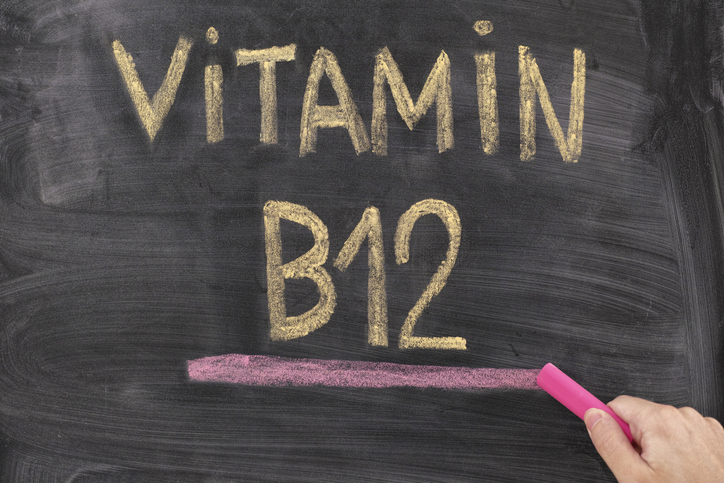You may have heard that vitamin B-12 is important for your body and there are some people who need to supplement it in their diet. Many things have been said about this vitamin. I will try to keep it simple, here is what you need to know about vitamin B-12.
Importance and Sources
Also known as cobalamin, vitamin B-12 plays a key role in the several critical functions of your body. Cell metabolism, nerve function, red blood cell formation and DNA productions are all functions where your body needs vitamin B-12. It can be found in animal products including meat, poultry, fish and dairy products. Nutritional yeast, tempeh, fortified certified cereals and plant milks are all plant-based sources of vitamin B-12. It can also be found in many daily nutrition supplements.
Deficiencies, Toxicities and Adequate Amounts
Rest assured, B-12 deficiencies are uncommon in the U.S. Vegetarians and vegans are more prone to deficiencies due to the lack of animal products in their diet. Through proper diet and/or supplementation, deficiencies are rare. The elderly and those with digestive issues can have issues with B-12 consumption and should talk with their doctor about the need for supplementation. Long term deficiencies of B-12, if left uncorrected can have serious consequences such as anemia, muscle weakness, intestinal problems, nerve damage and fatigue. To avoid this, 2.4 micrograms of vitamin B-12 is needed everyday for adults. For some perspective, a serving of nutritional yeast (½ cup) has 12 micrograms of B-12 and a 3 ounce ground beef contains 2.4 micrograms. Toxicity of B-12 is also uncommon. Our bodies are amazing, when we consume enough B-12 daily the excess leaves the body through our urine. Those who are pregnant and breastfeeding should talk with their dietitian or doctor to see if vitamin B-12 is necessary for them
Research Findings
Vitamin B-12 is a highly researched vitamin. Athletic performance was shown to not be affected by B-12 supplementation. Heart and blood vessel disease risk is not decreased with B-12 supplementation. Dementia and low cognitive function is associated with vitamin B-12, but it is not clear if supplementation can prevent or treat dementia. Further research on these topics would be beneficial. B-12 has been shown to have possible interactions with some medications. Speak with your doctor about any medications you are currently taking to avoid any complications.
Simply put, vitamin B-12 is important for our bodies to function properly. B-12 can be found in both animal-based and plant-based foods. Supplementation may be helpful for some and not necessary for others. Both deficiencies and toxicities are rare in the U.S. Many people may be concerned with your health and tell you things are untrue about your nutritional health. Please consult medical professionals for all nutrition related advice.
Sources: Mayoclinic.com and NIH.gov










